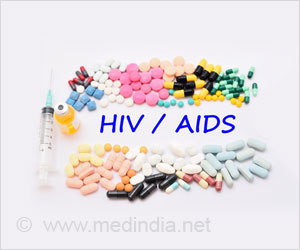Poor HIV-infected women need not stop breastfeeding their babies early or abruptly, says a new study by researchers from Columbia University's Mailman School of Public Health.
Washington, July 25 (ANI): Poor HIV-infected women need not stop breastfeeding their babies early or abruptly, says a new study by researchers from Columbia University's Mailman School of Public Health.
Breast-feeding by HIV-infected women is one of the most challenging issues in infant health and preventing mother-to-child HIV transmission in poor countriesEarlier HIV-infected mothers had been advised that for the best outcome for their infants, they should exclusively breast-feed, followed by a rapid weaning four to six months after birth.
However, this new study conducted in Lusaka and Zambia said that abrupt cessation of breast-feeding by HIV+ mothers after the first four months of life did not result in any statistically significant benefit to infants in terms of HIV-free survival at 24 months, compared to those infants who were weaned at an average of 16 months of age (68.4 pct versus 64 pct).
Another finding of the same study highlighted that infants who were HIV+ at four months of age had significantly higher death rates by 24 months if they were abruptly weaned than if breast-feeding were continued (74 pct versus 55 pct).
There was no statistically significant difference in HIV-free survival at 24 months in infants who were breast- fed and not infected with HIV at four months. In figures, it was 84 percent for those who stopped breast- feeding early compared to 81 percent who continued to breast- feed.
A total of 958 women with HIV and their infants participated in the study. The proportion of new HIV infections between four and 24 months was not much different between the children whose mother abruptly stopped breast-feeding and those whose mothers continued to breast-feed indefinitely, and there were no significant differences in survival between them.
Advertisement
"We certainly did not anticipate that children who were already infected with HIV before weaning would have significantly worse outcomes if they were to forego breast milk, especially since, theoretically, formula and weaning cereal are nutritionally replete. Our observation of a clear benefit of breast- feeding for HIV-infected children highlights the importance of strengthening infant diagnostic services to triage infected children into HIV care and treatment and to provide encouragement for continued breast-feeding of infected children," said Louise Kuhn, PhD, associate professor of Epidemiology at the Mailman School of Public Health.
"These results suggest that early, abrupt cessation of breast-feeding for HIV-infected women in low-resource settings should be avoided," said Kuhn.
The study is published in the latest issue of the New England Journal of Medicine.
Source-ANI
RAS/M















